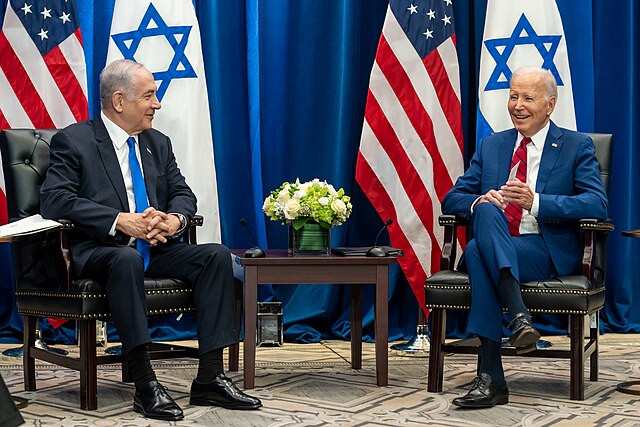The Biden administration has issued a direct warning to Iran against escalating its attacks on Israel, cautioning that the United States "won't be able to hold Israel back" in the event of further aggression. Following a series of recent attacks and counterattacks, the U.S. is signaling a firm stance in support of its ally. A U.S. official, speaking on the condition of anonymity, said, "We told the Iranians: We won't be able to hold Israel back, and we won't be able to make sure that the next attack will be calibrated and targeted as the previous one."
The heightened tensions come after Iran reportedly launched approximately 200 ballistic missiles at Israel on October 1, leading Israel to retaliate by targeting Iranian military facilities. U.S. officials have reportedly conveyed to Tehran that any further escalation could trigger more comprehensive Israeli strikes on Iran. This message was communicated both directly and through intermediaries, an unusual step that underscores the severity of the situation.
Iran, however, has not backed down. Iranian Supreme Leader Ali Khamenei recently warned, "The U.S. and Israel will definitely receive a crushing response." Esmail Kowsari, a member of Iran's national security committee, stated that the Supreme National Security Council had already determined a course of action, though the timing and scale of the response have not been disclosed. Kowsari explained, "The attack will be executed in coordination with other 'resistance' groups in the region."
At the United Nations, U.S. Ambassador Linda Thomas-Greenfield reiterated Washington's position on the issue. "We will not hesitate to act in self-defense. Let there be no confusion," she told the Security Council. "The United States does not want to see further escalation. We believe this should be the end of the direct exchange of fire between Israel and Iran."
Israel's U.N. Ambassador Danny Danon called for "crippling sanctions" on Iran's military and economic infrastructure, telling the Security Council, "Any further aggression will be met with consequences that are swift and decisive." He insisted that Israel's actions have been "measured and proportionate" and emphasized that "Israel does not seek war."
The Biden administration has backed its warnings with visible military preparations. Pentagon Press Secretary Gen. Pat Ryder stated on Friday that additional U.S. forces, including ballistic missile defense destroyers, fighter squadrons, tanker aircraft, and several B-52 long-range strike bombers, were being deployed to the Middle East. Ryder conveyed Secretary of Defense Lloyd Austin's message: "Secretary Austin continues to make clear that should Iran, its partners, or its proxies use this moment to target American personnel or interests in the region, the United States will take every measure necessary to defend our people."
Iran's U.N. Ambassador Amir Saied Iravani responded with a rebuke of the United States' support for Israel, calling it "complicit" in Israel's actions. "Iran has consistently championed diplomacy," Iravani told the Security Council. "However, as a sovereign state, the Islamic Republic of Iran reserves its inherent right to respond at a time of its choosing to this act of aggression."
This increasingly tense environment has attracted global attention. China's U.N. Ambassador Fu Cong urged the United States to prioritize "saving lives and preventing war" and to support efforts for a ceasefire between Israel and Lebanon, though he did not directly mention Iran. Meanwhile, Russia's Ambassador Vassily Nebenzia condemned the U.S. support for Israel, stating, "Jerusalem is not ready to give up on its choice to resolve all of its conflict situations with neighbors exclusively by force. Their determination to act that way is... because they have the support and cover from American allies."
In a bid to de-escalate the situation, Britain's U.N. Ambassador Barbara Woodward advised restraint, stating, "All sides must exercise restraint. No good can come of pouring more fuel on the flames of this escalating cycle of violence."
Amid a backdrop of threats and intensified rhetoric, the U.S. continues to monitor intelligence reports suggesting that Iran might be planning to launch an attack on Israel from Iraqi territory, possibly involving the Iranian Revolutionary Guard Corps (IRGC) and allied Shia militias. U.S. officials indicated that such a move could lead to a response from Israel, regardless of the attack's origin. "It will depend on how massive the attack is and what are its results," an Israeli official told Axios.




